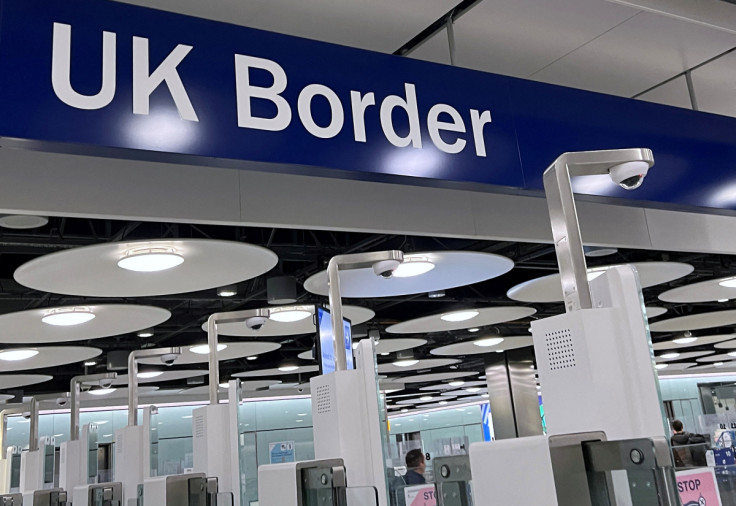
UK travellers going out of the country and people coming to the UK are soon to get the benefits of passport-free seamless travel at UK airports as the UK border force trials facial recognition technology soon.
Earlier, the UK Border Force introduced biometric technologies at Heathrow and hinted at a possible passport control shake-up with facial recognition technology in 2024. Starting this year, UK travellers don't need to show passports at unspecified UK airports, the Director of Border Security Force Phil Douglas reportedly said.
The new passport-free travel measures and UK Electronic Travel Authorisation (ETA) are part of the UK government's plan to speed up the immigration process as it would help the border force in making admission decisions and fixing ID issues.
This comes at a time when the policing minister urged UK police chiefs to double the use of AI-enabled facial recognition technology to track crimes in the country.
The UK government has launched passport-less travel changes after careful study of airports that have facial recognition all over the world including Dubai where it is used for 50 nationalities.
In Australia, electronic travel authorisation lets the smartphone read the chip placed in the passport which sends all the information to the Australian authorities. The UK government is trying to achieve that with the new measure.
However, UK travellers still have to queue up for security checks which is expected to shorten due to facial recognition technology.
Will facial recognition ease travel hassles?
The proposed frictionless facial recognition technology to be carried out by eGates at the UK airports got a mixed reaction from UK travellers with some welcoming it and others sceptical about it.
According to Amber Port, Audience Growth manager at Condé Nast Traveller, this could help get a "seamless airport experience" for people like her who have families spread out all over the world, from the UK to the US to South Africa.
"I'm all for automating the process where possible – I've already seen the benefits at airports like Hartsfield Jackson in Atlanta," said Amber Port.
Meanwhile, Charley Ward, a commerce writer at Condé Nast Traveller thinks of bettering airport security gates. According to Ward, better security gates will help travellers more in reducing the waiting times than border security control.
"Unpacking your bags, dealing with liquids, grappling with electricals, taking off shoes, and then still needing a pat down? It's by far the worst part of the airport for me. If UK airports are going to invest tens of millions into efficiency, that's where they should spend money first," said Charley Ward.
Ward admitted that eGatss have sped up the security check process despite not being perfect all the while but expenditure should be on bettering UK airports, not border control.
After the trials are done and appear successful, the UK Border Force will replace 270 gates at airports and railway stations with facial recognition biometrics. The UK government is also planning to phase out legacy passport desks over the next two to three years following this change.
Earlier, in May 2023 the biometric e-gates were launched for UK and EU travellers but the system crashed over a long weekend rush hour, leading to several hours of delay for travellers.
Now, the Electronic Travel Authorisation (ETA) scheme has been expanded to include travellers from Qatar, Kuwait, Oman, Bahrain, UAE, Saudi Arabia and Jordan from February this year. Ultimately, ETA would be available to all who don't need a visa for a short visit.
Britain is also building a dedicated area at the Kent terminal for automobile passengers to align their cars according to the new EU biometric entry and exit system.
Similar passport-free travel options are in the pipeline in airports across the world like those in Canada will have facial recognition technology implemented through the Air Right Touch project from October 2024.
The Canada Border Services Agency (CBSA) is thinking of including facial recognition technology in border checks to curb immigration.
Vietnam is also planning to chip-based IDs and facial recognition biometrics in Phu Bai and Cat Bi international airports and Dien Bien airport from the first quarter of 2024, as per an Airports Corporation of Vietnam proposal.







